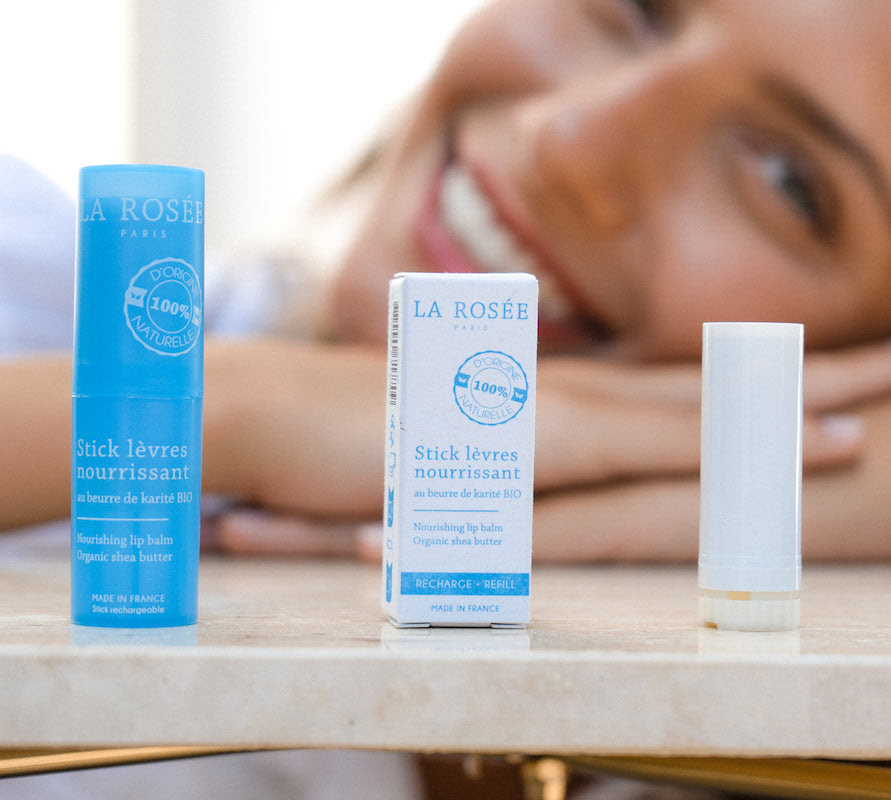
The two founders of La Rosée are pharmacists by training and began selling five products in 250 partner pharmacies in France. After eight years of existence, they have developed a range of more than thirty-three products available in one third of pharmacies in France and in five other countries.
In the beginning, the two pharmacists found that a range of cosmetic products that were healthy for the skin and the environment was missing from the shelves of their pharmacy. After this realization, Coline Bertrand and Mahault de Guibert, both in their thirties, created the brand La Rosée and sell their products only in pharmacies.
To the thirty-three products for the body, face, sun and baby already available, three new serums have just been added, one thirst-quenching called “concerned good look”, one anti-aging called “rejuvenation cure” and the last one plumping. These new products testify to the good health of the company, which has been profitable since 2019 and has a turnover of thirty-five million euros in 2022, double that of 2021.
The La Rosée brand is now available in 7,500 French pharmacies, Belgium, Chile, China, South Korea and Spain. Initially, the two pharmacists met at the Faculty of Pharmacy in Lyon, with Coline Bertrand immediately set up as a pharmacist while Mahault de Guibert first pursued a master’s degree in entrepreneurship at HEC. To finalize their project, they raise 1.7 million euros in 2015, then in 2017 and 2018 from relatives and pharmacies who believe in their concept.
They will then ask manufacturers, professionals of cosmetic manufacturing, one in Ardèche and the other in Normandy, to develop their products. They then decided to go door-to-door to pharmacies with the first five products available and in the first year, 250 pharmacies agreed to market their products.
The two young women are at the head of a team of 85 employees and estimate that they are among the top 10 products sold in pharmacies, based on the feedback from their partner network. According to them, their success can be summed up in three words: transparency, durability and cleanliness.
When the company was created, applications to evaluate the impact of products on health, such as Yuka, did not yet exist, nor did anti-waste laws, but they wanted to emphasize the transparency of labels and refused to use cardboard packaging. Mahault de Guibert likes to communicate about the 210 tons of packaging avoided even though she remembers that they were not taken seriously at first and were told that their products would gather dust.
The product charter available on the brand’s website, with all the formulas, specifies that the products are free of all potentially harmful ingredients and propose a 0% rate of parabens, mineral oils, phenoxyethanol, laurysulfate, phthalates, aluminum, triclosan, MIT or methylisothiazolinone, benzophenones, BHA or butylated hydroxyanisole, alkylphenols, lilial, PEG or PolyEthylene Glycol, formaldehydes, silicone, endocrine disruptors, EDTA or ethylenediamine tetra-acetic acid and ingredients of animal origin.

Only three products contain beeswax, and La Rosée toothpaste is also recommended by the French Union for Oral Health. The company has also developed eco-responsible approaches and products, such as delivery by a cargo bike system for the last mile when the order is placed on the website, reusable cotton-type items, small cotton gauze bags, toilet kits, fabric gift packages, furoshiki type and since 2019, the “1 euro = 1 tree planted” system in partnership with the NGO Emergency planet. The next step in the development of La Rosée is to develop refillable containers, Coline Bertrand specifies that not throwing away is the first eco-responsible gesture.
For the moment, the tubes manufactured in France are mainly of vegetable origin, made from sugar cane, except toothpaste, 43% of which is recycled from milk bottles. The cosmetics sector is still expanding and represents a market of about 2.7 billion euros according to the March 2022 figures of the cosmetics observatory, Cosmeticobs. The sector has recorded a growth of 3.8% in two years and the specificity of the main product distribution channel, which is through pharmacies, whose catalogue excluding drugs is at the discretion of the owners, leaves room for small brands and novelties, facing competition from industry giants such as Avene, La Roche-Posay or Nuxe,



Comment here